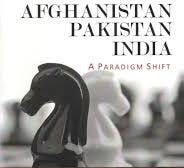Pakistan and Afghanistan quagmire- India is jumping right in to corner Pakistan.
The dynamics between India, Pakistan, and Afghanistan are shaped by decades of historical rivalry, geopolitical strategies, and evolving alliances. While India and Pakistan have had a longstanding rivalry, Afghanistan’s strategic location has often made it a battleground for influence between these two neighbors.
India has deepened its engagement with Afghanistan through diplomatic, economic, and security channels. India’s investments in infrastructure, education, and trade within Afghanistan have aimed to build goodwill and strengthen ties with Kabul. However, this involvement is viewed by Pakistan as a strategic attempt to encircle it geographically and diplomatically.
India’s strategy is often interpreted as leveraging Afghanistan to counter Pakistan’s influence and undermine its security. For instance:
• India’s support for anti-Pakistan factions, including providing resources and training to groups opposed to Pakistan’s policies in Afghanistan.
• Strengthening relations with the Afghan government and, more recently, maintaining limited contact with the Taliban to ensure Pakistan’s strategic depth is challenged.
Pakistan’s historical policy of fostering militant groups like the Taliban to maintain influence in Afghanistan has backfired. Its heavy-handed approach, including treating Afghanistan as a “backyard” for its strategic depth doctrine, has alienated various Afghan factions, including elements within the Taliban.
Key factors driving Taliban alignment with India:
• Pakistan’s meddling in Afghanistan’s internal affairs has bred resentment, pushing some factions to seek alternative alliances, including with India.
• India’s engagement with certain Taliban factions, post-2021, serves as a counterbalance to Pakistan’s dominance in the region.
Pakistan’s concept of “strategic depth” envisions Afghanistan as a friendly or subordinate state that provides strategic leverage against India in the event of conflict. However, Indian influence in Afghanistan undermines this doctrine, as:
• Indian investments have cultivated goodwill among Afghan citizens and leaders.
• India’s growing economic and diplomatic clout in Afghanistan presents a counterweight to Pakistan’s dominance, eroding its envisioned buffer zone.
This shift is perceived by Islamabad as a direct threat to its security and a destabilizing factor in its geopolitical calculations.
Reports of Pakistan considering the occupation of the Wakhan Corridor as a retaliatory measure against Afghanistan reflect its frustration over losing influence in Kabul. The corridor, which connects Afghanistan to China, holds strategic significance for both regional trade and security.However, such threats risk further alienating Afghanistan and intensifying regional instability, as Afghanistan historically resists foreign interference.
Afghanistan’s history of resisting foreign domination—whether by British, Soviet, or American forces—underscores its reputation as the “graveyard of empires.” Pakistan’s deep involvement in Afghan affairs makes it vulnerable to similar failures:
• Ethnic and tribal complexities in Afghanistan make it impossible to control effectively.
• The Afghan population’s historical resistance to perceived occupation or manipulation.
Pakistan faces economic crises, political instability, and rising insurgencies, all of which weaken its ability to sustain prolonged regional conflicts.Its perceived role in destabilizing Afghanistan has damaged its international reputation and reduced global support.The Taliban’s resistance to being a pliant proxy and its engagement with India demonstrate that Pakistan’s strategies in Afghanistan are not yielding the desired outcomes.
while India’s involvement in Afghanistan poses challenges to Pakistan’s regional ambitions, Pakistan’s own policies—ranging from over-reliance on proxies to mismanagement of alliances—have significantly contributed to its diminishing influence. Afghanistan’s historical resilience and complex dynamics make it a challenging arena for any external power to dominate, and Pakistan risks overextending itself in its pursuit of strategic depth.
To be continued…
Taimour Bukhari




